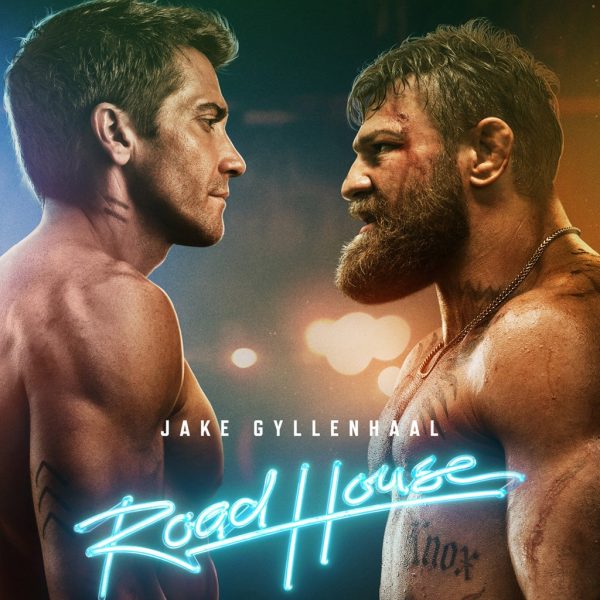‘Mitt’ Shows Us Another Side of Romney
December 1, 2016
The particularly vitriolic nature of the recent presidential election has led some to find themselves looking back on the 2012 election with nostalgia. Back then there were no scandals involving emails or sexual assault, just two candidates with character and previous experience in government. This is, at least, how much of the nation is allowing themselves to remember it.
But upon further review, the personal attacks in 2012 were not few and far between. To regain a perspective on that election and the polarizing figures that were a part of it, I revisited the documentary “Mitt.”
It was clear from the opening scene that the purpose of the film was to document the human side of politicians that is often overlooked.
The film is about Mitt Romney, who most recently is being courted by President-elect Donald Trump for the Secretary of State position — despite the very negative comments Romney made about Trump during the 2016 campaign.
“Mitt” is the third documentary captured by director Greg Whiteley whose newest work, “Last Chance U,” is the most recent original series success distributed by entertainment giant Netflix.
“Mitt” follows former Massachusetts governor Romney from his first failed Republican presidential nominee bid in 2008 up through election day 2012. In between, the audience is given a unique perspective on the grueling campaign process.
It was clear from the opening scene that the purpose of the film was to document the human side of politicians that is often overlooked. The film begins in a somber hotel room as members of Romney’s family sit quietly looking at their phones. The results of the election are coming in, and Romney’s path to victory has essentially evaporated.
Romney asks with a small grin of his face, “Does anyone have the number for the president?” He then confides in his family his concern over writing a concession speech. He wants to ride the tight line of supporting the president while also criticizing the Obama policies he doesn’t agree with. The film then cuts to black, jumping back in time to 2006 when Romney first decides to run for president.
The rest of the film is essentially defining moments throughout the two campaigns and then the interaction between him and his family following the events. The focus is certainly on the effect of these events on Romney and his family.
You can see the two sides of the campaign, the private and public side. An example of this can be scene when one of Romney’s sons is asked if the stress of the campaign is worth the price at the end of the road.
As he prepares to answer, he pauses and admits, “It’s hard to answer questions like this because normally I would say, of course, just getting to know the country and the opportunity for my dad to be president — it’s worth whatever it takes…but some days I do ask if it’s worth it.”
Another topic the documentary briefly covers is the frustration of being portrayed in a bad light by some members of the media. The most moving example of this is when the family is discussing a recent interview in which John Kerry criticized Romney as a rich, lazy guy because he had an elevator installed in his house.
Romney’s family is quick to come to his defense by explaining that the elevator was put in place for his wife, who had been diagnosed with multiple sclerosis. Ann Romney then goes on to explain that because the campaign is so tiring for her, she has to take breaks after every three or four days.
Mitt Romney also remarks how difficult it is to change the narrative after the media sets it. In his case he received the nickname “The Flipping Mormon.” He thought these attacks were unwarranted and unfair, saying, “People say, ‘Oh, you flip on everything,’ in which case I’m a flawed candidate.”
The most painful portion of the documentary are the two losses Romney suffers. Just by looking at the man’s face, it’s obvious he’s most disappointed at the thought he has let his family and supporters down by being unsuccessful. He often tempers expectations and doesn’t celebrate successful debate performances, presumably to avoid letting his inner circle become too hopeful or optimistic.
The pressure and possible guilt felt by candidates who think they hurt people by not winning is an angle I had never considered and allows me to sympathize with politicians more.
The biggest compliment I can give Whiteley was his ability to remain almost completely apolitical while covering such a political topic. This was clearly the intention of the filmmaker as the documentary’s tagline was “Whatever side you’re on, see another side.”
I don’t think that this documentary covers a Republican candidate will turn off more liberal viewers because actual policy is never really covered other than one scene when Romney discusses the repercussions of taxes on small businesses.
The documentary’s biggest flaw is the omission of “insider” aspects, more meetings that show how campaigns choose slogans, messaging and other strategies. The bigger flaw was not including much interaction between Romney and running mate Paul Ryan.
Knowing more about their relationship could provide yet another interesting angle. Finally, the documentary covers the recovery following devastating moments in Romney’s campaign, like the “47 percent” comments, but don’t capture their immediate reaction after hearing the news.
After watching this documentary, I wondered whether more voters would have supported Romney had they known more about him. The man in this film is certainly not perfect but doesn’t seem like the guy who fired people for fun as he was portrayed in some circles.
I asked William Mattingly, who did vote in last election, to provide his opinion. He said the film may have changed some minds, but the bigger problem is how to get people to see it who weren’t interested because of their political views or their lack of interest in politics in general.
He said, “It may have gotten people to vote for him — if he could’ve gotten people to watch it. But most of the people who watched would’ve already been voting for him.”
“Mitt” is an informative non-partisan inside look at the enormous struggles one goes through when aspiring for the highest office in the land. I would suggest anyone interested in politics give it a watch because it provides amazing access to the political process.
The film asks us to consider if the treatment of our politicians in this age of clickbait articles and five-second soundbites is truly fair. “Mitt” follows through with its tagline and provides an essential look at “another side.”






